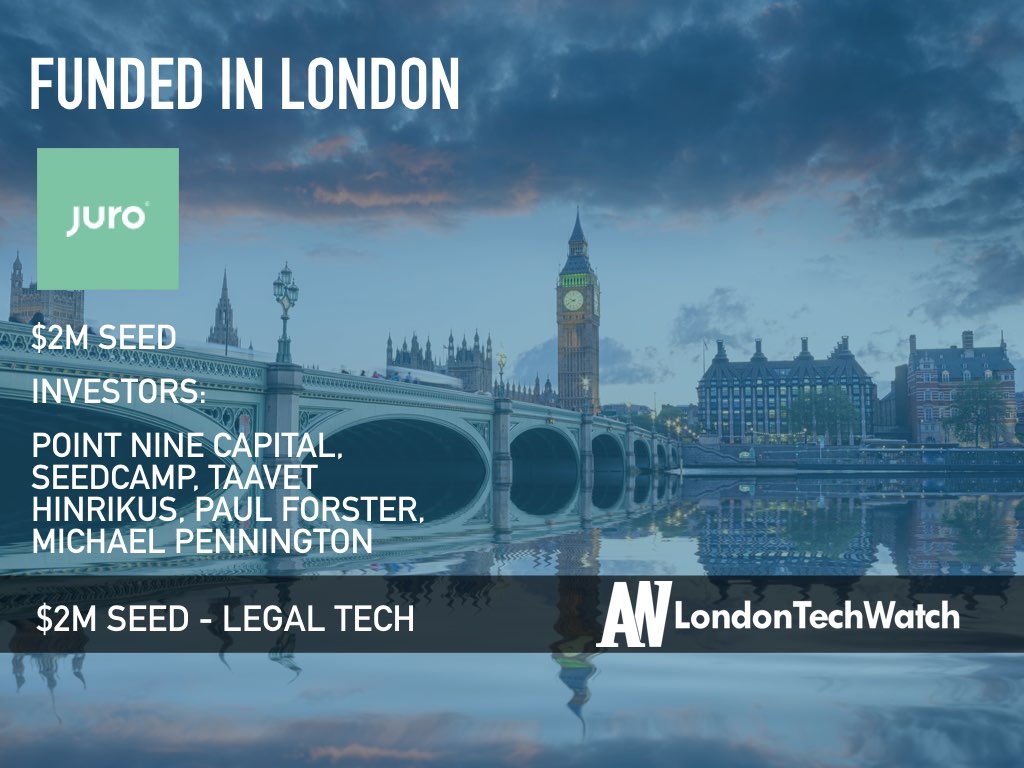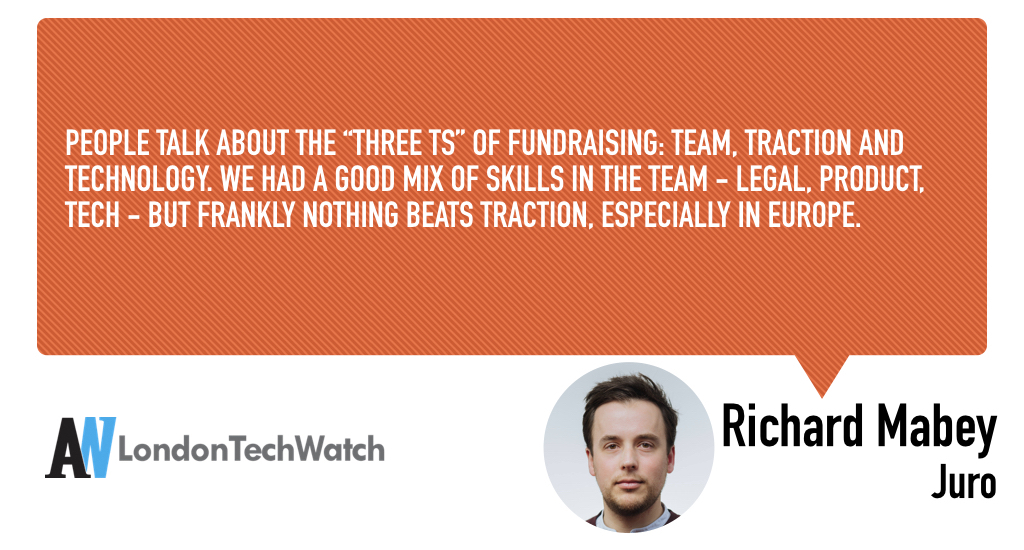
Adults still play email tennis when trying to work out the kinks of a legal contract with the endless back and forth and redlining. Thankfully, London startup Juno updates how you edit and finalize legal documents. Utilizing smart-documents, the company provides the legally binding contract platform for end-to-end contract management. The contract workflow tool provides electronic signing, permanent records of every edit, and heavily reduces legal risk. The company is said to save 75% of time otherwise spent on paperwork helping you focus on closing deals faster.
London TechWatch chatted with cofounder and CEO Richard Mabey about the company’s latest round of funding.
Who were your investors and how much did you raise?
We are backed by Point Nine Capital, Seedcamp and angels including the founders of TransferWise, Gumtree and Indeed. We just raised a $2M late Seed round, taking total funding to $2.75M.
Tell us about Juro.
We are an AI-enabled contract management platform. We enable businesses to create, negotiate, e-sign and manage contracts then learn from their contract data.
 What inspired you to start Juro?
What inspired you to start Juro?
As a former lawyer, I’ve spent my entire career working with contracts. Whereas the process of deciding what to go in contracts was pretty good the ways in which my clients then took contracts to signing and beyond was clunky, manual and time-consuming. I thought there was a better way and built Juro to make this happen.
How is Juro different?
Typically we get chosen for our user experience. One of the problems with many of the businesses in our space is that they are poorly designed. And it’s not just that they look like Windows 95. They don’t integrate with the tools that businesses use every day and they don’t deliver a great experience for all involved.
What market does Juro targeting and how big is it?
We operate on the $300B corporate legal market.
What’s your business model?
We have 2 plans: a per user plan and an API plan, which is based on the volumes of contracts signed.
Can you share some outcomes that you have seen within your users from use of your platform?
We see 3 things: Faster closing of contracts, less time spent on process and lower contract risks.
What was the funding process like?
We were fortunate to have our existing investor, Point Nine Capital lead the round, which made things a bit easier but it’s never easy!
What are the biggest challenges that you faced while raising capital?
Taking on an investor is like getting married. We always take multiple references on our investors as well as really think about whether they will add tangible value. There’s a lot of BS in the investor community and very few investors who can really make a difference. One of the biggest challenges for us was finding out who they are.
What factors about your business led your investors to write the check?
People talk about the “three Ts” of fundraising: team, traction and technology. We had a good mix of skills in the team – legal, product, tech – but frankly nothing beats traction, especially in Europe.

What are the milestones you plan to achieve in the next six months?
We will be building the team to 25 people, growing revenue by 10x and executing on our product roadmap.
What advice can you offer companies in London that do not have a fresh injection of capital in the bank?
See if you can bootstrap. VC is not always essential so don’t be put off if you don’t get it. What really matters is traction and if you can get it without external assistance you should. Fundraising is a big time investment.
Where do you see the company going now over the near term?
We’ve still got a lot we want to achieve with the product. We will be heads down executing and continuing to attract the high calibre customers that help us to define our vision.
What is your favorite restaurant in London?
Sosharu



